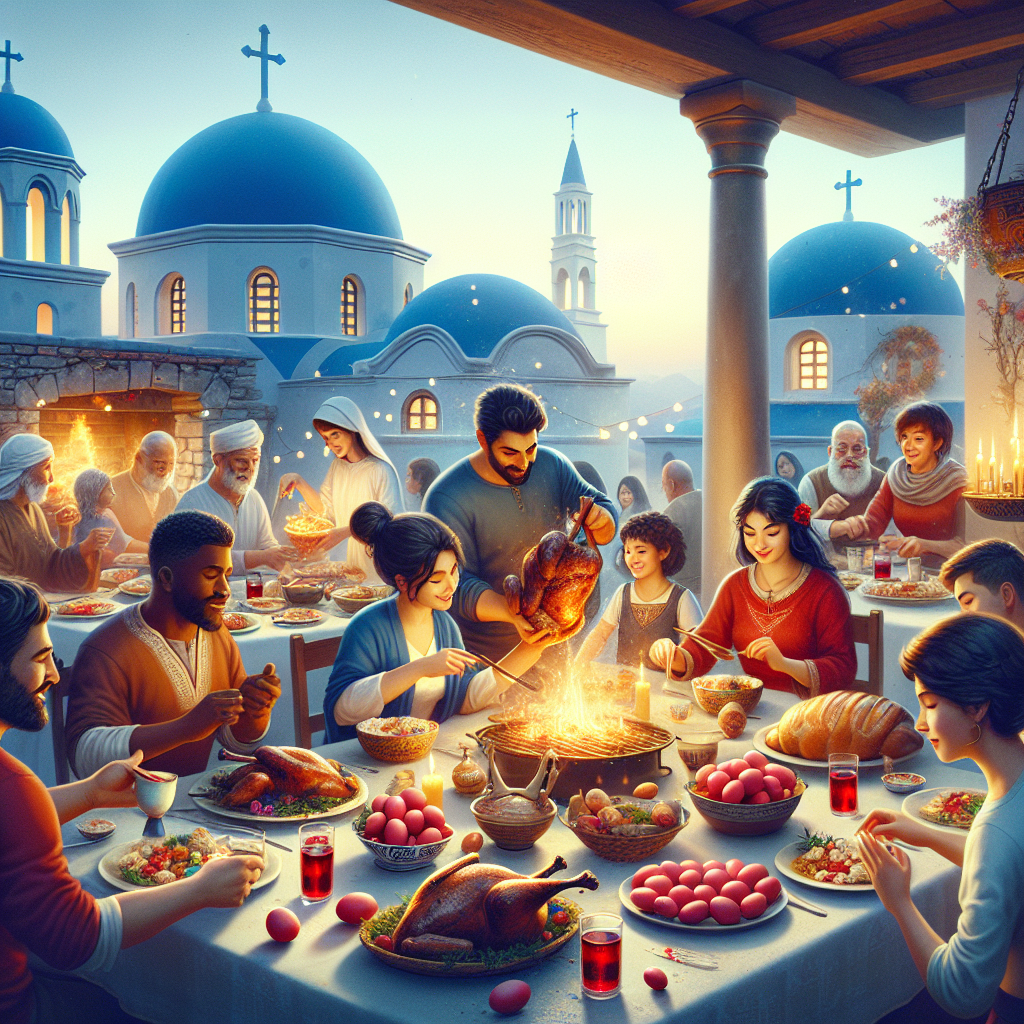Celebrate Greek Easter 2025 with a deep understanding of its rich traditions and cultural significance. For many, Easter represents a time of renewal and joy; however, it can feel overwhelming to navigate the profound rituals and customs associated with this sacred holiday. Stripping away the layers of complexity can reveal a beautiful tapestry of history, faith, and community—elements that resonate deeply with those seeking connection and meaning in their lives. Dive into this detailed exploration and discover how you can fully embrace and celebrate Greek Easter in 2025.
Exploring the Rich Traditions of Greek Easter Celebrations
Greek Easter, known as Pascha, is a vibrant celebration steeped in ancient customs and religious significance. Leading up to Easter Sunday, the Holy Week involves a series of rituals that highlight the journey of Christ’s passion. One of the most notable traditions is the Midnight Resurrection Service, where the church bells ring joyfully at midnight, signifying the resurrection of Christ. This moment is accentuated with the lighting of candles, creating a beautiful display of flickering lights as parishes unite in joyous celebration. The tradition of exchanging the greeting "Christos Anesti" (Christ is Risen) enhances the communal spirit, as families and friends gather both in churches and around their dinner tables.
In the days leading up to Pascha, families partake in Lent, abstaining from certain foods, which is a symbolic purification process. The culmination of this period is observed on Holy Saturday, where the preparation of traditional dishes like lamb and red-dyed eggs marks the awaited feast. The red eggs, representing the blood of Christ, are commonly used in a game called “tsougrisma,” where participants try to crack each other’s eggs, signifying the victory of life over death. This playful interaction brings families together, reinforcing bonds and evoking laughter amidst the solemnity of the season.
On Easter Sunday, the atmosphere transforms into one of joy and festivity. The feast typically features roasted lamb, a symbol of Christ as the sacrificial lamb, accompanied by a variety of side dishes that reflect regional Greek specialties. Music, dancing, and sharing stories deepen the experience, allowing for moments of reflection and gratitude. This celebration is not just a meal; it is an embrace of heritage, underscoring the importance of family and community in preserving these vibrant traditions.
Understanding the Cultural Significance of Greek Easter 2025
Greek Easter 2025 offers a unique opportunity to appreciate the profound cultural significance embedded in its observance. For many Greeks, Easter is not merely a religious holiday; it represents the essence of Greek identity, interwoven with threads of spirituality, history, and resilience. The observance of Pascha serves as a reminder of the struggles endured by ancestors, particularly during periods of oppression and hardship in Greek history. It symbolizes hope and triumph, celebrating the fundamental belief in resurrection and renewal that resonates deeply within the Greek Orthodox faith.
The cultural practices surrounding Easter also reflect the values of generosity and hospitality that are hallmarks of Greek society. It is a time when families open their homes to friends and neighbors, sharing not just food but stories and traditions passed down through generations. This communal aspect fosters deep connections, transcending boundaries of age and background. In a world that often feels fragmented, the embrace of these cultural practices invites everyone to partake in the festivities, reinforcing social ties that may otherwise be neglected.
Additionally, Greek Easter serves as a vital link between past and present. The preservation of ancient customs, such as the preparation of special bread (tsoureki) and the intricate art of egg dyeing, reflects a commitment to keeping traditions alive. This continuity is a powerful testament to cultural pride and identity, allowing newer generations to appreciate their heritage in an evolving world. By celebrating Greek Easter 2025, individuals are not just participating in a religious observance but engaging in an act of cultural preservation that honors the legacy of their ancestors.
As you navigate the extraordinary customs and significance of Greek Easter 2025, consider how these rich traditions can enhance your own spiritual journey and foster connections within your community. Engaging with the rituals and celebrations offers a chance to reflect on the values of renewal, hope, and unity that have defined this holiday for centuries. Whether you are experiencing Greek Easter for the first time or seeking to deepen your understanding of its cultural significance, there is an abundance of meaning to explore. Embrace the opportunity to celebrate and connect with those around you, and make this Easter not just a holiday, but a transformative experience filled with joy and camaraderie.
Exploring the Impact of 40,000 Daily Steps on Weight LossEffective Yoga Poses for Optimal Weight Loss and WellnessComprehensive Reviews of Happy Mammoth Weight Loss ProgramRelevant LinkRelevant LinkRelevant Link




